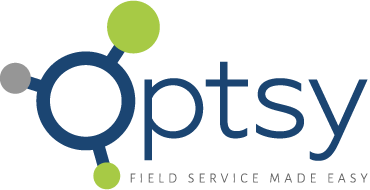Field Service Investments to Make Before Paying Taxes on Profit
Sometimes when we work with field service organizations, we get financial accounting questions. This is fine, although a little bit odd at first — we create and maintain field service management (FSM) mobile-first software, and we are by no means accountants. But because these questions do arise, we wanted to dedicate a quick entry to them. It’s important to lay out a couple of caveats up front before we do, however:
We are not financial accountants or lawyers
Some of the below is advice we’ve seen
You should always consult with your tax advisor or finance team before making any decisions
That stated, here is the first thing you need to understand. Taxes are a big deal in the United States, and people have been creating systems to avoid paying taxes in full for almost as long as there have been taxes. (Reference the 2016 Presidential election as an example.) There are two concepts here: tax avoidance (that’s legal) and tax evasion (that is not). The differences are outlined well in this post. Essentially, tax avoidance is lowering your bill by structuring transactions to receive the largest possible benefit. Tax evasion is leaving off income, creating false records, etc. One is good, the other is bad. That’s your baseline.
There are some notable strategies for small businesses to reduce taxes. One of the primary ones (besides employing family members) is using an HSA for health care needs. (Here are the 2016 deduction limits.) HSAs are a smart move for small businesses because you can typically pay less in taxes and save more money for health care — a win-win.
Little known fact (to many): if you take lunch meetings, you can typically pay lower taxes. As Investopedia notes in that article:
As long as the dining expenses are reasonable, you are allowed to deduct 50% of meal costs when eating with business partners and employees while conducting business operations. If you buy lunch every day and spend around $8, you can deduct $4. If you do the math, that amounts to over $1000 a year in claimable deductions ($4/day x 5 days x 52 weeks).
Now we come to our intersection point with this topic: Consider making a field service investment by buying business equipment. When you do that, you can usually get deductions by claiming a depreciation allowance over 5-7 years. Under Section 179, though, you can deduct the entire cost of the equipment in the year that it’s placed into service. If you optimize Section 179, the deduction is accelerated — meaning you have an immediate tax benefit from the purchase. Of course, it’s investments in your future like this that can make the management of cash flow for field service so crucial.
Most small business field service operations get some solid tax breaks on truck mileage, but here’s another consideration: If you’re one of the 14 percent or so field service businesses still relying on mostly manual processes, consider buying field service software this year. Then try to use Section 179 to get a tax benefit from the software within 2017. If you’re totally new to the idea of field service management software, we put together a little primer — it’s a checklist of the ideas you need to consider when selecting an integrated approach to running your business. You can download it now. Come at us with any questions (although the really specific tax questions should go to a professional).


